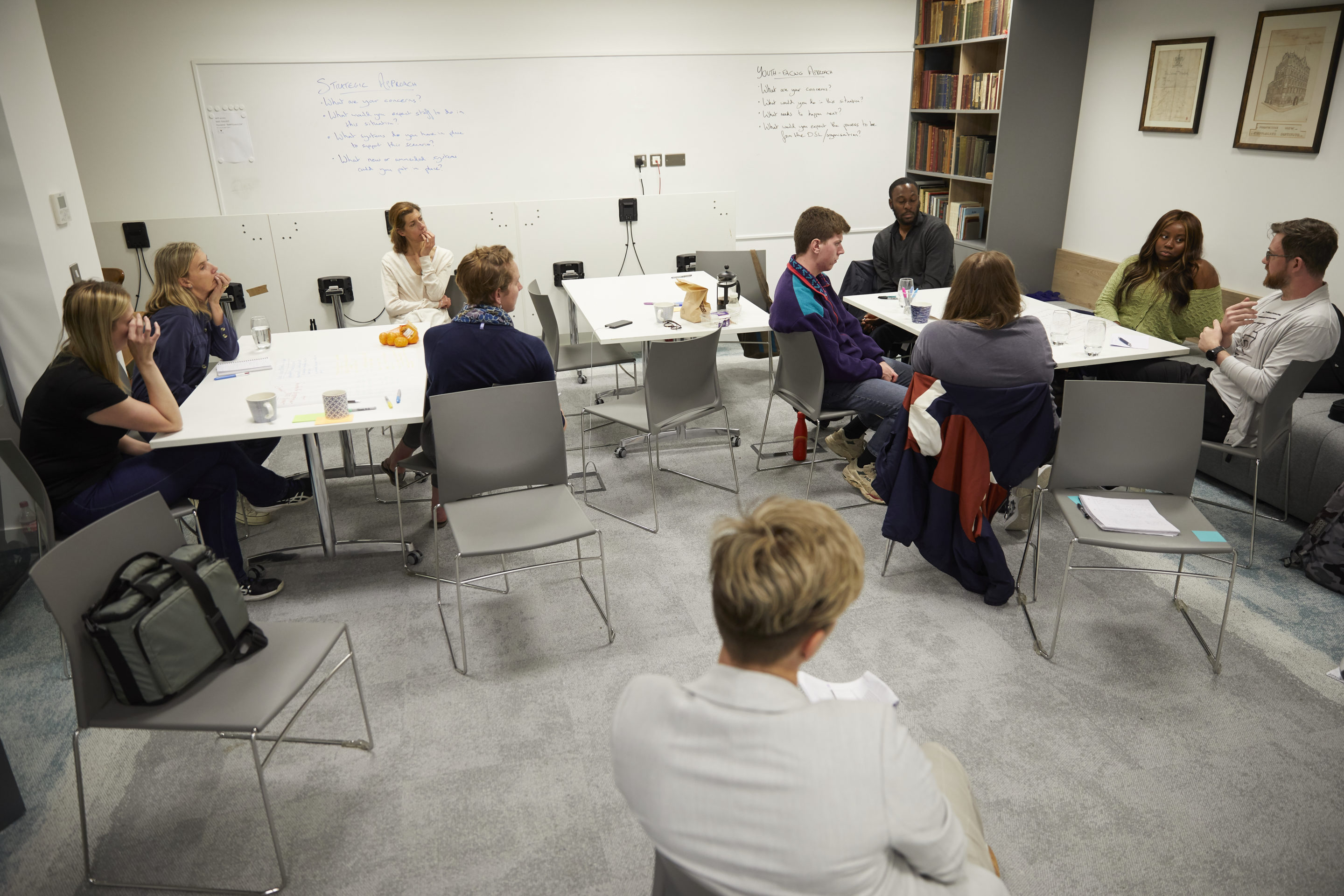One of the goals of the Blagrave strategy 2022-5 is to support a more collaborative youth sector. Our belief is that a collaborative sector is better able to prioritise learning and that this learning will benefit young people.
In my work with regional youth work charities, I wanted to check whether our partners were equally excited about collaboration, especially given the numerous pressures they currently face.
Due to the power dynamics inherent in the funding relationship, I knew I was not the right person to ask partners more about this. I therefore asked POP Plymouth who are known for their collaborative approach, to do this on my behalf.
They conducted research with eight of our partners asking them for their views and experiences of collaboration. POP then presented their findings and facilitated a conversation between Blagrave staff to help us consider key questions such as: what is the landscape of collaboration that already exists, and how can we support collaboration to grow and thrive within it?
What I learned
POP’s research threw up some surprises! For me there were 5 key learnings and points of reflection:
The first was I needed to clarify what I mean by collaboration. I was confidently using the term to describe the process of organisations working closely together to share learning between each other, young people and Blagrave Trust, to complement and enhance each others’ work. I felt I had a clear concept in mind. But POP’s research showed there’s no one way collaboration should look. Blagrave’s partners told us they need active ‘permission’ from funders to allow it to exist in all sorts of shapes and sizes. Sometimes this means funders need to be open to funding space for collaboration without tangible outcomes in sight.
The second was if I want to encourage our partners to collaborate, I need to be clear about what I think the purpose of collaboration is. POP reflected back to me something I already know well: that all Blagrave’s partners are already delivering amazing and powerful support for young people. I can facilitate a space for them to improve their work still further, but is this where the real impact lies? POP’s research reflected an interest from partners to be part of a collaboration that explicitly aims to influence others, where practice is not so good. This could range from working together locally to challenge local ‘good practice’, to working with national policy partners to highlight the possibilities for system change. I need to think about how I can facilitate a different type of conversation and what support I’ll need to do this well.
Thirdly, I need to be realistic about the resources needed for collaboration. Partners said that a lack of resources is a key barrier for them eg community, relationships, skills and expertise, and venues, as well as funding. I realised I could use Blagrave’s networks to share these resources with our partners.
Then POP issued a challenge. Across Blagrave they spotted different strategic areas relate to partners in different ways. POP noticed Blagrave seems to have a different package of support for youth led movements compared to a registered charity – even a small grassroots one – which is led and managed by more experienced professionals. In many cases this is appropriate and important, but they asked who gets to decide the levels of compensation for funded time for example? Or when travel costs to a Blagrave event are covered? I realised I need to develop a framework for our support that reflects how Blagrave differentiates between them.
Finally, the research demanded I look beyond the regional partners I work with, to consider collaboration across the whole community of Blagrave’s partners. Organisations led by more experienced professionals have so much to gain from working directly with youth led organisations. Equally, organisations at the start of any journey stand to gain so much from intergenerational wisdom. Up to now, I think we’ve kept different Blagrave audiences separate out of concern that we need to protect people’s time and in some cases emotional safety. I would like to consider whether now is the time to change this and step into the role that being a funder across such diverse audiences offers.
Next step
Following this learning, my plans now fall into short term and longer term actions:
I would welcome collaborators in this work! To stay involved please contact Tessa Hibbert on Tessa.hibbert@blagravetrust.org

